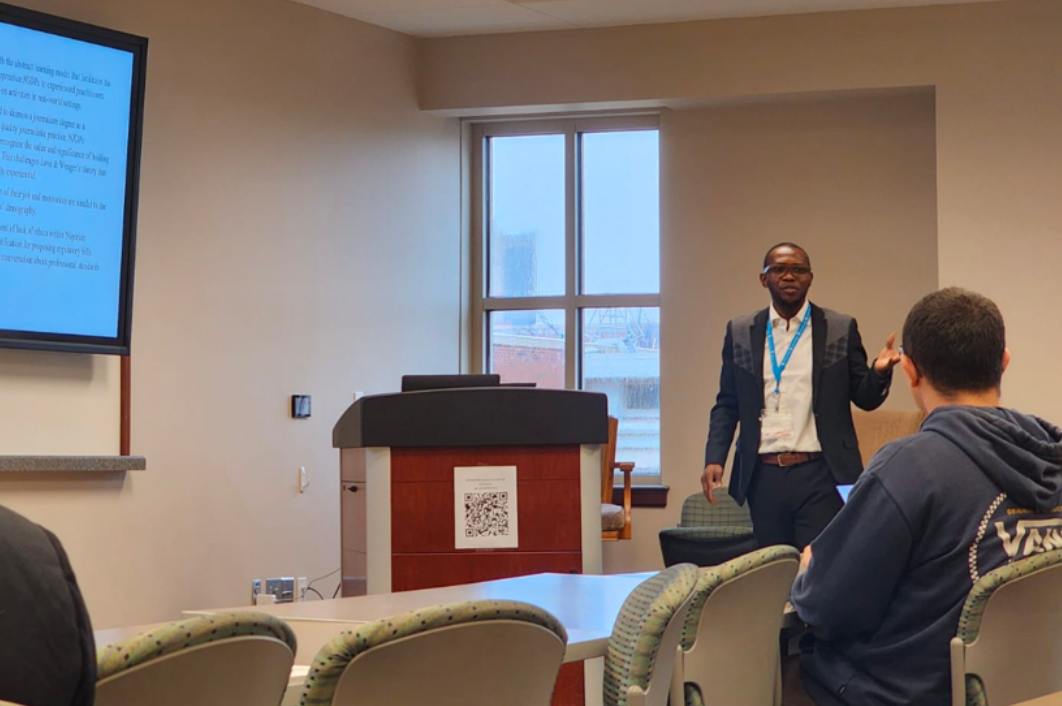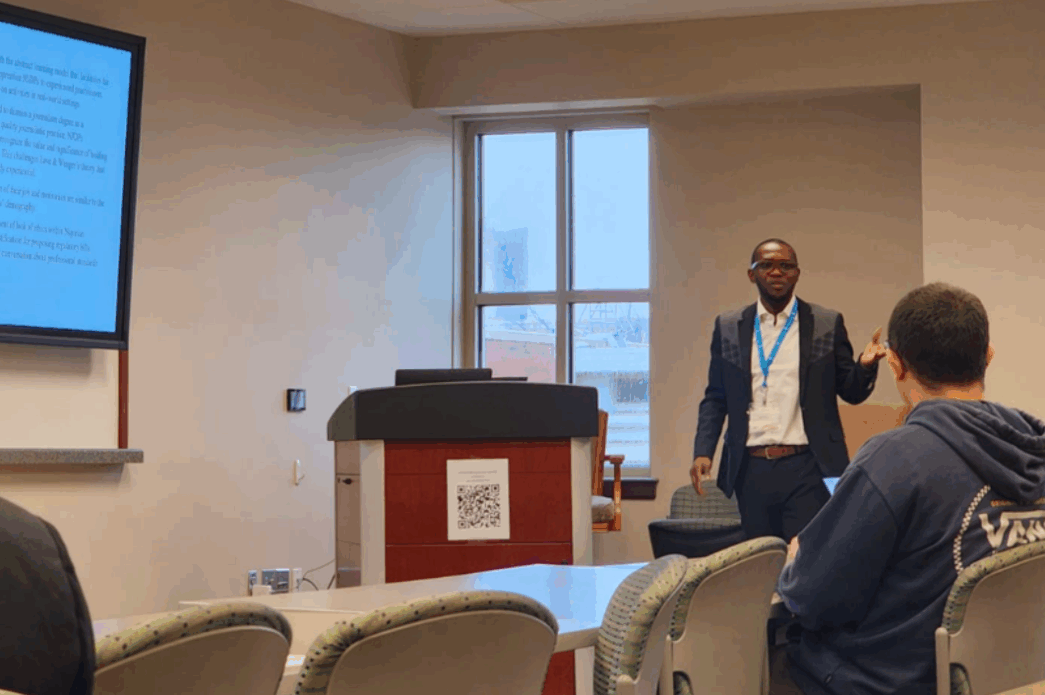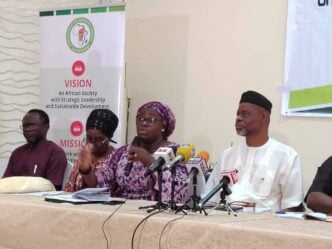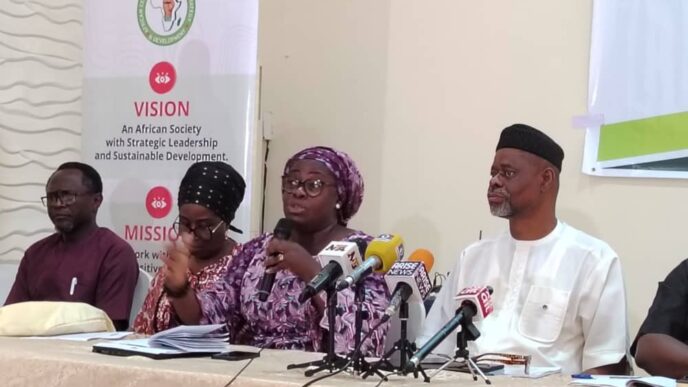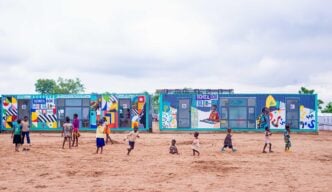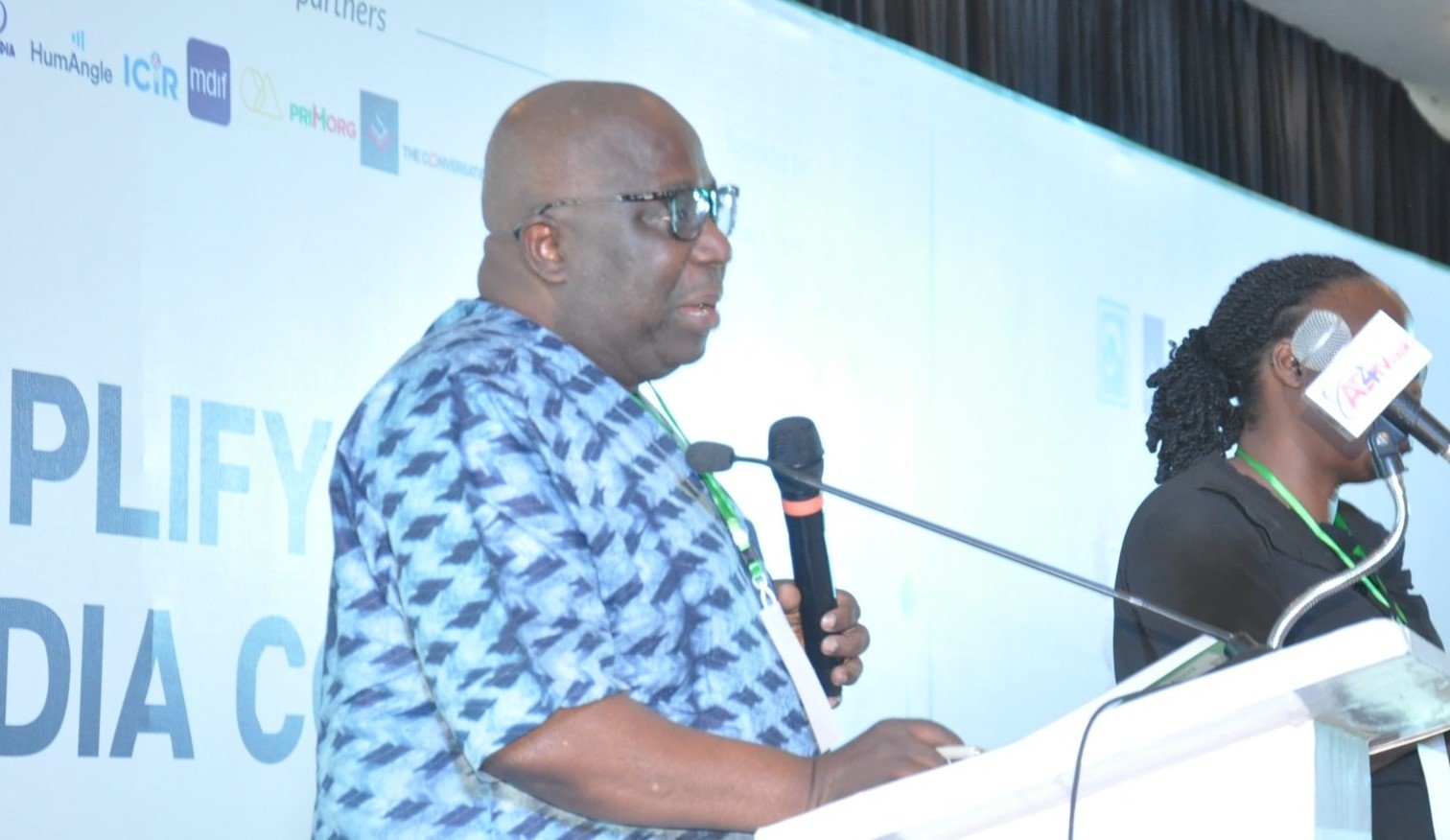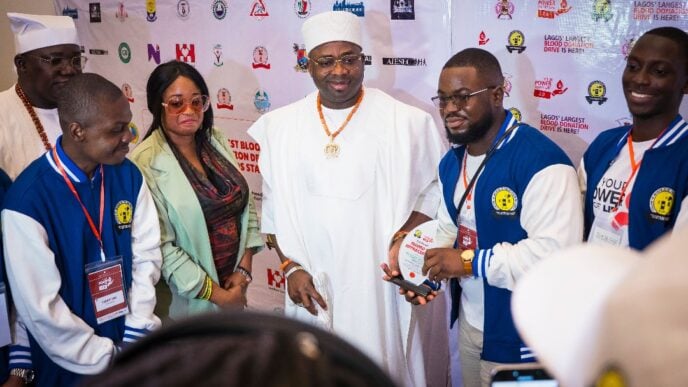Busari presenting his research at the 2025 AEJMC Mid-Winter Conference on Oklahoma in March
A new study has found that the majority of journalists in selected Nigerian newsrooms do not hold journalism or media-related degrees.
Findings from the ongoing research, conducted by Kemi Busari, Nigerian journalist and academic, were presented at the 2025 edition of the Association for Education in Journalism and Mass Communication (AEJMC) National Conference in San Francisco, United States.
According to the study, 58 percent of journalists working in four Nigerian newsrooms surveyed did not study journalism or any media-related course. Of this group, 13 percent were science graduates from disciplines such as physiology, botany, and biochemistry.
Both of Busari’s manuscripts were adjudged top-referred papers. Top-referred papers in a conference presentation are the highest-scoring submissions based on peer reviewers’ evaluations.
Advertisement
The first paper, titled “Beyond the Degree: Examining Hiring Criteria and the Role of Journalism Education in the Recruitment of Journalists in Nigerian Newsrooms”, explored the qualities that newsrooms and editors look for when hiring new journalists.
Analysis of interviews and reporter job advertisements reveals six “ultimate criteria” considered in the recruitment process to include passion, adherence to ethics, writing ability, among others. These criteria remain regardless of the newsroom culture and personal preferences of the recruiters.
There are other “adaptable criteria” that are subject to changes depending on the peculiarity of the newsroom and the recruiting editor. They include critical thinking, age, experience, and others.
Advertisement
The paper also reached a verdict about the importance of journalism degree in the recruitment process as well as the socialisation models employed by newsrooms for new journalists.
The paper won the top paper prize in the Scholastic Journalism Division of AEJMC. The award certificate and cash prize was presented in a separate event on Saturday, August 9.
The second presentation, also a top-referred paper, was titled, “The Paradox of Journalism Degree: Exploring the Motivations and Job Perceptions of Journalists Without Formal Journalism Education.”
Presented on Saturday, August 9, the study used demographic surveys and interviews to uncover the experiences of journalists who didn’t study journalism.
Advertisement
The survey data show that such journalists constitute 58% of the workforce in the four newsrooms selected for the study. The remaining 42% studied journalism or media-related courses.
Interestingly, 13% of the 58% studied pure science courses like physiology, Botany, and biochemistry.
The study finds that journalists who didn’t study journalism end up in the newsroom mostly unintentionally.
Busari noted the novelty of his research, adding that the study on journalists without journalism degrees is the first of its kind in the journalism education literature.
Advertisement
“Often in journalism studies, journalists are regarded as a homogeneous group; however, as my findings suggest, within this group are several groups with different experiences and motivations,” Busari said.
“For instance, journalists without journalism degrees have different experiences and motivations for the job. Their experiences need to be studied separate from the general demography. To the best of my knowledge, no other researcher has ever looked at these demographics separately.”
Advertisement
Busari hopes his research will contribute new knowledge as well as inform policy drives within the journalism education sector.
“In Nigeria, for instance, a lawmaker proposed a bill to criminalise the practice of journalism without journalism degrees. In that bill, there was no data on how many of such journalists exist in the country, how they got into journalism or whether the newsrooms or their audiences even care about their degrees. My study fills that gap and offers a lot more.
Advertisement
“Such bills need to come from a place of deep knowledge. Legislation on professional practice and education policies, especially in journalism, needs to be driven by objective data,” he said.
Busari concluded that more of the findings of his research would be made public as the study progresses.
Advertisement

